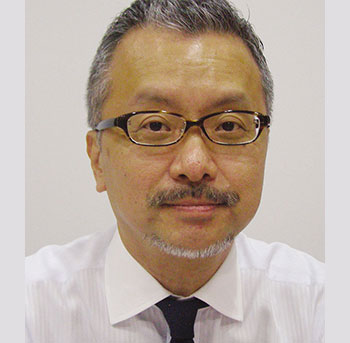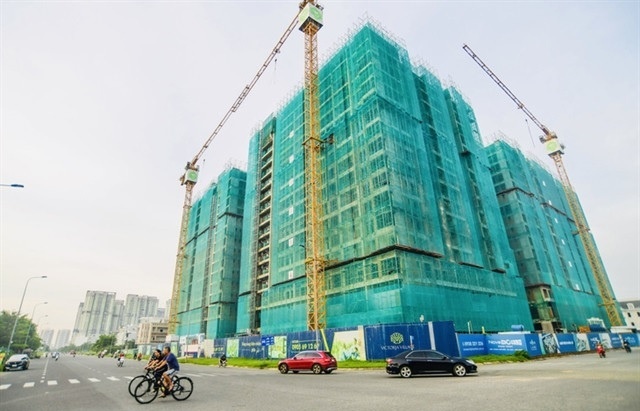Seeking solutions to sluggish pace of SOE reforms
 The SOE equitisation process is deemed rather slow now. In JICA’s point of view, what are the reasons behind this?
The SOE equitisation process is deemed rather slow now. In JICA’s point of view, what are the reasons behind this?
While the actual target aimed to equitise 432 SOEs from 2014–2015, as of August 31, only a little over half of the said figure has, in reality, been equitised. If we simply look at the number alone, the answer to the question is yes, the pace is rather dawdling, with reference to the set target.
However, the pressing issue here is not attributed to the quantity or the sluggishness. What I am concerned about the most is that in the SOEs that have been equitised, the state-owned stakes still account for around 90 per cent of the total, and only 30 enterprises among the 143 equitised in 2014 sold more than 5 per cent of stakes to foreign corporate investors, according to a research company’s report. I believe that the equitisation process has not been deployed effectively, as I do not see a substantial change between the 100 per cent SOEs, the pre-equitised, and the post-equitised 90 per cent SOEs.
Vietnam might be too ambitious in striving to accomplish its equitisation plan all at once. While the country may manage to touch the tip of the iceberg, meaning that it may be able to divest some of its stakes at the SOEs, it has not been able to change the nature of these enterprises completely.
Each enterprise is different in its own right, and the government should have really taken into account their conditions and profitability individually to determine the most suitable divestment routes, in a bid to truly change the nature of the SOEs.
From an investor’s perspective, being either a local or international investor, what they will be looking at when consider investing in an SOE comes down to the attractiveness or profitability of the company itself.
The government has been conducting SOE equitisation through initial public offerings (IPO), yet it has not made efforts bold enough, seeing that the stakes on offer are actually very small. And I think that this approach is indeed unproductive.
In many cases, the stake sale is capped at 10 per cent for a strategic investor, and in some exceptional cases, the limit can only go as high as 20 per cent.
In the case of attractive SOEs, strategic investors are thus constrained by the stake sale limit. And as for those that are deemed unattractive or unprofitable, despite how hard the government endeavours to sell them, no investors will actually be interested in acquiring them.
My impression is that Vietnam has been essentially trying to get rid of the so-called unattractive or unprofitable SOEs and holding on to the good ones. In this sense, I think the whole equitisation approach is, as a matter of fact, giving the government a rather counterproductive outcome at the moment.
What should unattractive SOEs do to catch investors’ attention and interest?
In the case of unattractive SOEs that often find it too difficult to sell their stakes to investors, what they need to do first is to improve their corporate governance. Enhancing their corporate governance will help strengthen investors’ confidence to invest into the SOEs.
Additionally, if the SOEs have made losses, they should really be bold enough to cut these losses and focus on the more profitable business lines. In my opinion, before any enterprise wants to successfully sell their stakes or carry out their IPO, it will definitely need to restructure itself in terms of corporate governance and capability to generate profit.
What are your suggestions to the government to attract strategic foreign investors for the SOEs?
Vietnam is courting strategic investors to acquire the SOEs’ stakes. While the strategic investors must fulfill certain responsibilities and commitments, according to the new Law on Enterprises, they must hold over 35 per cent of the stakes to have a veto right in important decisions.
As strategic investors can only acquire some 10 to 20 per cent of the SOEs’ holdings, they cannot participate in the enterprise’s decision making process, leading to the question: so what is in it for the strategic investors? Foreign investors do not see any merit in becoming a strategic investor to a Vietnamese enterprise.
As such, the government must balance the responsibilities and benefits of strategic investors in a bid to make the equitisation process attractive.
If the stake sale cannot be boosted up to 35 per cent to ensure strategic investors’ veto rights, the government can perhaps grant them the right to veto important decisions in the company’s operations and management by amending the corporate charters of SOEs.
What the stars mean:
★ Poor ★ ★ Promising ★★★ Good ★★★★ Very good ★★★★★ Exceptional
Latest News
More News
- Cross-border QR payment service launched between Vietnam and Laos (January 13, 2025 | 18:44)
- State budget revenues rise compared to previous year (January 13, 2025 | 10:11)
- Remittances to Ho Chi Minh City top $9.6 billion in 2024 (January 10, 2025 | 13:59)
- Banks launch promotions to hail Year of the Snake (January 09, 2025 | 11:08)
- Standard Chartered Vietnam named Best Foreign Bank and Best Digital Bank 2024 (January 09, 2025 | 09:00)
- Banking sector seeks to build on last year’s strong growth (January 08, 2025 | 12:00)
- Credit growth confronts new pressure (January 08, 2025 | 08:00)
- Rate policies to be managed strategically (January 07, 2025 | 16:13)
- 2024 a year of resilience for Vietnam Bank for Social Policies (January 07, 2025 | 13:14)
- Vietnam’s capital market set to diversify in 2025 (January 04, 2025 | 08:00)















 Mobile Version
Mobile Version